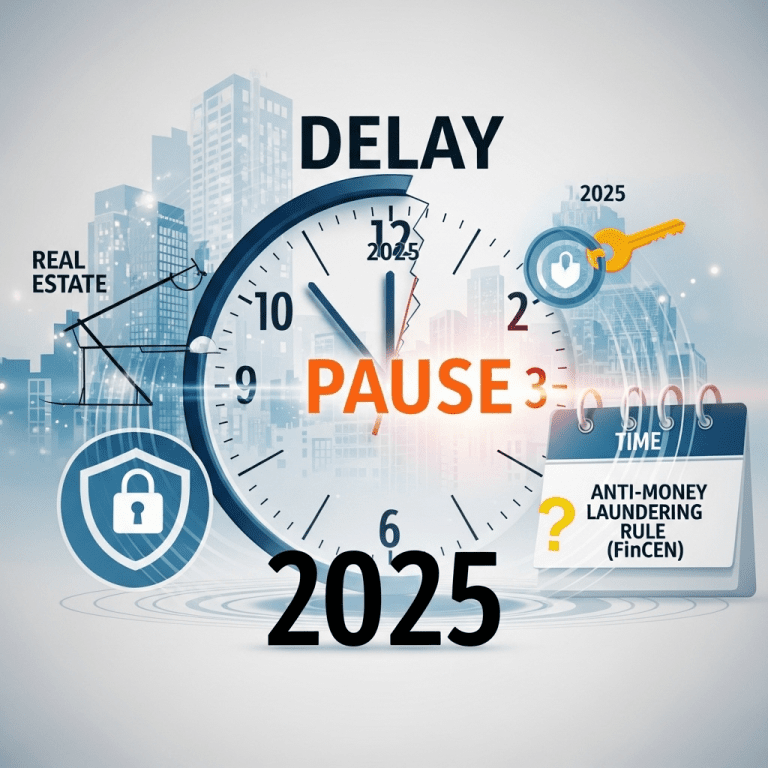The recent news that FinCEN delays implementation of anti-money laundering rule is creating ripples in the real estate industry. The Financial Crimes Enforcement Network (FinCEN) postponed its much-anticipated policy. Real estate professionals are now questioning how this delay will affect compliance, risk management, and transactional transparency in 2025.
Understanding Why FinCEN Delays Implementation of Anti-Money Laundering Rule
The anti-money laundering (AML) rule was designed to introduce stricter due diligence for high-value real estate transactions. Its goal is to uncover illicit financial activity. However, FinCEN cited industry feedback and operational complexities as reasons for delaying the rollout. This extension gives stakeholders more time to prepare. At the same time, it raises urgent questions about ongoing risk and regulatory readiness.Potential Implications for the Real Estate Sector
Real estate is vulnerable to money laundering due to large cash transactions and indirect ownership structures. With the announcement that FinCEN delays implementation of anti-money laundering rule, ongoing transactions may be affected in several ways:- Compliance timelines extended: Firms now have extra time to improve compliance protocols and train staff.
- Risk of regulatory uncertainty: The shifting timeline makes planning harder for real estate companies and legal advisors.
- Temporary relief for small businesses: Smaller agencies with limited compliance resources may benefit from the delay.
LSI Keywords
Terms such as ‘real estate anti-money laundering compliance,’ ‘FinCEN guidelines,’ and ‘AML rule delay’ are appearing in legal briefings and industry news. Professionals should monitor updates and integrate these keywords into compliance documentation and policy planning.Steps Real Estate Firms Should Take Amid the Delay
Even with the delay, firms should use this time to strengthen AML defenses. Strategic steps include:- Stay informed: Follow updates from reputable real estate resources and FinCEN.
- Upgrade internal controls: Review transaction monitoring and reporting processes to ensure smooth adaptation when the rule is implemented.
- Engage with industry associations: Participate in webinars and workshops offered by authoritative platforms.
- Communicate with clients: Inform buyers, sellers, and investors about compliance expectations and timelines.
- Implement ongoing staff training: Continuous education is essential as regulations evolve.









